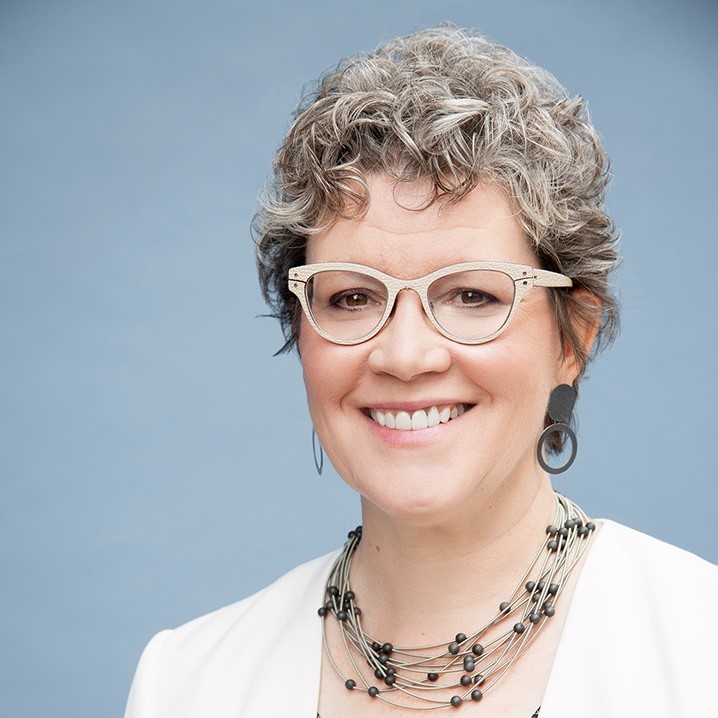In 2020, CDFIs got a glimpse of what can be accomplished with accelerated, larger-scale investment, thanks to an unprecedented corporate and philanthropic response to the pandemic and racial reckoning. In a blog for Impact Alpha, LISC COO Annie Donovan makes an appeal for continued robust investment: CDFIs were able to get those dollars where they needed to be, and will continue to leverage those resources 12:1, as long as private-sector partners stay at the table.
The excerpt below was originally published on Impact Alpha:
Now is the time to accelerate investments in community development financial institutions
For impact investors, one of the many takeaways from the last 18 months should be this: incrementalism will not get us where we need to go.
That is true on a host of issues, from climate change to global poverty, but right now it is particularly relevant for U.S. community development financial institutions, or CDFIs, which are coming off one of the most productive periods in the sector’s history.
In this, CDFIs have been countercyclical, growing when so many organizations have struggled. They have been central to pandemic relief efforts, particularly for businesses and communities not effectively served by the conventional marketplace. They have been a pipeline for racial equity investments, designing high-impact opportunities for corporate and philanthropic investors. And they have accelerated efforts around economic resilience, advocating for strategies that help communities better prepare for the health, financial and weather-related disasters yet to come.
The challenge now is to build on that momentum, not slip back into business as usual. Decades of steady gains—building job by job, business by business, block by block—have been incredibly valuable to families and communities and have been a clear demonstration of what works to spur economic opportunity.
But CDFIs and community-based organizations have argued for many years that the scale of investment activity is nowhere near enough to meet the enormity of the challenge. Transformative progress requires better access to patient, flexible, risk-taking capital. When that falls short, so too does the hoped-for levels of social, racial and economic gain.
Outperformance
In 2020, we got a glimpse of what we can accomplish with accelerated, larger-scale investment efforts. Tapping into existing local networks and years of community investment expertise, CDFIs were able to put billions of dollars in new capital to work, reaching people that neither government nor the private marketplace can effectively serve on their own.
In many cases, CDFIs outperformed traditional banks in meeting the public policy goals of pandemic relief. For instance, CDFIs made $34 billion in Paycheck Protection Program loans to some of the nation’s hardest hit businesses and nonprofits, the overwhelming majority of which are in underserved communities and led by women and people of color. Those are the same entrepreneurs and organizations that typically struggle to access appropriate financing, even in the best of times. It is a gap that would not be filled, but for CDFIs.
Policymakers have made a strong bet on that kind of continued progress. Congress designated $12 billion to build the capacity of CDFIs and Minority Deposit Institutions, or MDIs, as part of the CARES Act. That includes $3 billion for the Treasury Department’s CDFI Fund, an unprecedented one-time infusion into CDFIs that is equivalent to more than 10x the CDFI Fund’s annual budget. The fund made its first grants from this new funding last month as part of its Rapid Response Program.
If past practice holds, and there is no reason to think it won’t, CDFIs will leverage these resources 12:1, as long as private-sector partners stay at the table.
CDFIs are the connection point for opportunity and impact. We can reach underserved people and places and extend that reach to investment partners that want to contribute to a more robust, inclusive economy.
It has never been more important for all of us in the CDFI sector to do that well and to make sure investors and advisors understand the kind of opportunities that are available. Our capacity is substantially growing; we need private-sector engagement to grow as well.
Continue to original story [+]...
ABOUT THE AUTHOR
 Annie Donovan, COO
Annie Donovan, COO
Annie Donovan joined LISC In May 2019 as COO. Immediately prior, she was a Senior Fellow at the Beeck Center for Social Impact and Innovation at Georgetown University and a Senior Fellow at the Center for Community Investment at the Lincoln Institute of Land Policy. Annie’s distinguished career in community development and impact investing includes serving as Director of the U.S. Department of the Treasury’s Community Development Financial Institutions Fund (CDFI Fund).
@ADonovanLISC